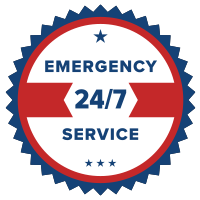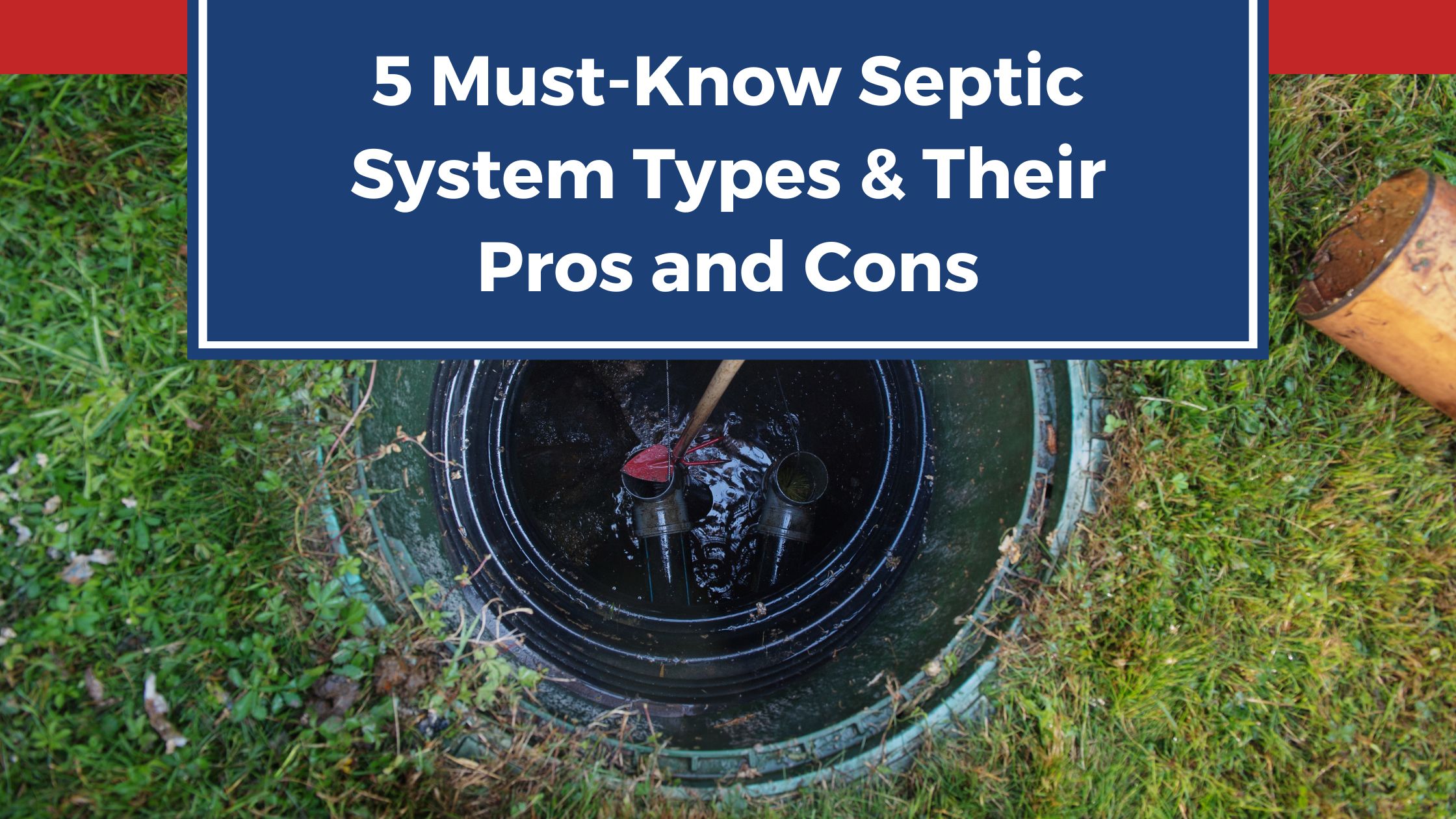5 Must-Know Septic System Types & Their Pros and Cons
When it comes to septic systems, one size definitely does not fit all. Choosing the right system—or even understanding the one you already have—can significantly impact your home’s efficiency, your budget, and your environmental footprint. Whether you’re building a new home in Georgia or maintaining an existing one, understanding the different types of septic systems is essential for long-term success.
In this comprehensive guide, we’ll explore the 5 most common types of septic systems, their advantages and disadvantages, and which one may be best for your property. We’ll also include expert tips, frequently asked questions, and a clear path to professional support right here in Georgia.
Why the Right Septic System Matters
A septic system is a critical component of any home that isn’t connected to a municipal sewer system. Designed to safely treat and dispose of household wastewater, the system must match your property’s soil, water table, size, and use to function properly.
Choosing the wrong system—or failing to maintain the right one—can lead to:
- Groundwater contamination
- Drain field failure
- Costly repairs or replacements
- Health hazards and legal fines
Understanding your options empowers you to make the best decision for your home, your budget, and the environment.
1. Conventional Septic Systems (Gravity Systems)
What It Is:
The conventional system is the most common and cost-effective type for single-family homes. It uses gravity to move wastewater from your home into a septic tank, where solids settle. The liquid (effluent) then flows into a drain field, where it’s filtered through soil.
Best For:
- Homes with ample land
- Properties with good soil percolation
- Flat or gently sloping terrain
Pros:
- Simple and low-cost
- Minimal maintenance when used properly
- Long lifespan if maintained
Cons:
- Not suitable for small or rocky lots
- Requires well-draining soil
- Gravity-dependent; less effective on sloped land
2. Chamber Septic Systems
What It Is:
A chamber system uses connected plastic or fiberglass chambers in place of gravel-filled trenches in the drain field. It allows effluent to flow into open-bottomed chambers and be absorbed into the surrounding soil.
Best For:
- Areas with limited gravel availability
- Properties where shallow excavation is preferred
Pros:
- Easier and quicker to install
- Ideal for properties with fluctuating water tables
- Performs well in sandy or loamy soils
Cons:
- Can be less durable than gravel systems
- May require more frequent inspection
3. Mound Septic Systems
What It Is:
Mound systems are used when there is shallow soil depth, high groundwater, or poor percolation. A sand-filled mound is constructed above ground level, with a pressurized pump distributing effluent across the top.
Best For:
- Areas with high water tables
- Shallow soil conditions
- Properties with poor natural drainage
Pros:
- Enables septic installation where traditional systems fail
- Reduces risk of groundwater contamination
- Custom-built to site conditions
Cons:
- Expensive to install and maintain
- Requires electric pump, which increases utility costs
- More visible than in-ground systems
4. Aerobic Treatment Units (ATUs)
What It Is:
An ATU uses oxygen to promote the growth of beneficial bacteria that break down waste more effectively than anaerobic (oxygen-free) systems. The treated effluent is usually cleaner and may be suitable for areas with sensitive environmental concerns.
Best For:
- Small lots
- Areas near lakes, rivers, or wetlands
- Homeowners looking for enhanced treatment performance
Pros:
- Produces high-quality effluent
- Reduces environmental impact
- Allows for more flexible drain field design
Cons:
- Requires regular professional maintenance
- Higher installation and operational costs
- Dependent on electricity
5. Recirculating Sand Filter Systems
What It Is:
This system adds an additional layer of filtration using sand. Effluent is pumped through a sand filter before being discharged into the drain field. It’s ideal when conventional systems won’t provide sufficient treatment.
Best For:
- Sites with clay or poorly draining soil
- Homes close to water bodies
- Properties requiring advanced waste treatment
Pros:
- Excellent filtration for cleaner effluent
- Reduces risk of groundwater pollution
- Can be used with limited drain field space
Cons:
- High maintenance needs
- Requires electric pump and control panel
- Complex installation process
Which Septic System is Right for You?
Here are key factors to consider when selecting or evaluating your septic system:
Factor | Ideal System |
Large yard, good soil | Conventional or Chamber |
Poor drainage, high water table | Mound or Sand Filter |
Limited space | ATU or Mound |
Environmentally sensitive area | ATU or Sand Filter |
Budget-conscious installation | Conventional or Chamber |
Your local septic professional can perform soil testing and site assessments to determine the best system for your needs and property layout.
Maintenance Matters, No Matter the Type
Regardless of the type, all septic systems require regular maintenance:
- Routine pumping (every 3–5 years)
- Filter checks and cleaning
- Monitoring for leaks, backups, or odor
- Mindful water usage
Skipping routine maintenance can shorten your system’s lifespan and lead to expensive repairs.
Frequently Asked Questions (FAQs)
Q: How do I know what type of septic system I have?
A: Review your home’s original permits or contact a septic professional for an inspection. They can determine your system type based on tank design and drain field configuration.
Q: Can I switch from a conventional system to a different type?
A: Yes, but it may require permits, soil tests, and substantial investment. This is usually done during major renovations or if the current system fails.
Q: What’s the best septic system for clay soil?
A: Mound and sand filter systems are ideal for clay, which doesn’t absorb effluent efficiently.
Q: Are aerobic systems worth the cost?
A: For properties near water or with limited space, ATUs offer superior treatment. While costly, they’re often the best (or only) option.
Q: Can I plant over my drain field?
A: Yes, but only shallow-rooted plants or grass. Avoid trees, shrubs, or vegetable gardens to prevent root intrusion or contamination.
Contact Us to Identify or Service Your Septic System
If you’re unsure which septic system you have—or you’re considering a replacement or upgrade—One Way Septic is here to help. Located in Acworth, Georgia, we specialize in diagnosing, maintaining, and installing all types of septic systems based on the unique needs of your property. Contact us by phone at 404-775-1164, or visit our website to schedule a service or consultation. Our experienced team is ready to assist you in choosing the right solution and keeping your septic system running smoothly for years to come.




